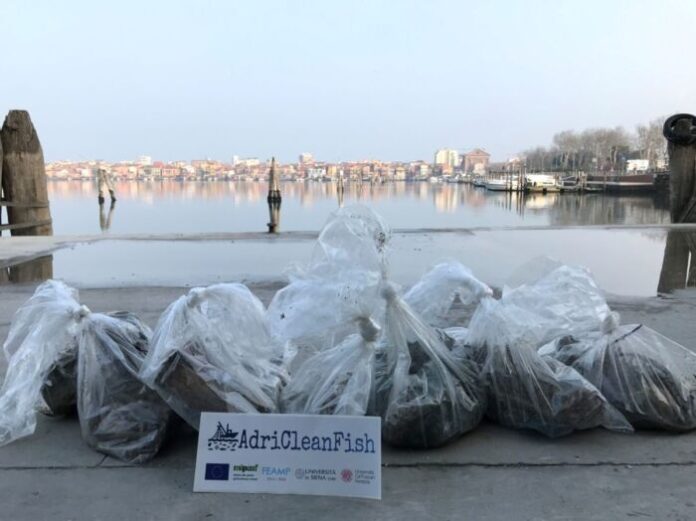
Researchers and fishermen allied in a project to monitor, collect and assess the impact of waste at sea and its effects on fish species. The AdriCleanFish research project is funded by the Ministry of Agricultural, Food and Forestry Policies under the EMFF Operational Program 2014-2020 (European Fund for Maritime Affairs and Fisheries) and is coordinated by the University of Siena and the University Ca ‘Foscari of Venice. The Adriatic ports of Civitanova Marche (Macerata) and Chioggia (Venice) were chosen for monitoring.
The project involved fishermen, who can play a very important role in the fight against marine pollution. The fishing boats collected the waste at sea, which was then sorted and analyzed on land. The researchers organized training meetings with the fishermen of Chioggia and Civitanova Marche on the management and conservation of marine biological resources; the fishermen themselves took part in the making of a documentary which illustrates the activities carried out during the project. The objective of the documentary is to convey awareness to citizens and institutions of the seriousness of the impact of waste at sea and the consequent repercussions on fishing.
Most of the waste comes from land, but a large part is due to activities related to navigation (pleasure, commercial and tourist transport), for example ropes, cables, fenders, buoys and floats. Monitoring confirms that all fishermen fish for waste, mostly plastic, and at least 20% of the fish have ingested microplastics.
The Mediterranean is one of the areas with the greatest presence of microplastics in the world. More than 70% of the analyzed waste is made of plastic, mainly disposable (bags and bottles). About 50% of this material is made up of packaging, not only in plastic but also in aluminum (beverage cans, therefore also disposable). There are also large quantities of nets used for mussel farming, waste related to commercial fishing (pieces of net and rubber structures used to protect the part of the net in contact with the bottom) and objects related to small-scale fishing (gill nets, pots and traps). The project also monitored and analyzed floating macro-waste.
AdriCleanFish researchers analyzed fish species intended for human consumption (in particular anchovy, hake, sardine, sole, horse mackerel, mullet). Ecotoxicological investigations assessed the health of the selected species, the possible effects caused by ingesting plastic, the accumulation of the main synthetic chemical contaminants present in microplastics in the edible part of the fish and the possible consequences for human health. On average 2 out of 10 fish had traces of plastic in their gastrointestinal tracts (both plastic waste in general and microplastics). Since the ingested microplastics are expelled from the digestive system and at the time of consumption this part is eliminated, we can deduce that they are not ingested by humans.
The interesting novelty of the AdriCleanFish project was the direct involvement of the fishermen to whom, in collaboration with 58 Italian seafarers, AdriCleanFish administered questionnaires which show that 43% of fishermen always or almost always fish for waste; few (1-4%) those who declare that they never or almost never fish waste. The areas most affected are those below the coast and near the mouths of rivers. All interviewees noted problems such as the storage of waste on board, the slowdown in the collection and separation of fish, the lack of suitable points on land for the delivery and disposal of waste.
Almost all the interviewees believe that awareness and responsibility activities are necessary for fishermen and citizens through the media, in schools, or with periodic waste collection campaigns. In this regard, the Fishing for Litter initiative is worthy of note, created to facilitate land delivery of waste collected from the sea by fishermen.



































